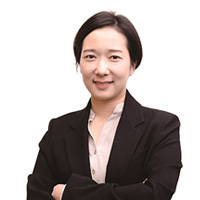[Herald Interview] Rirkrit Tiravanija poses fundamental human questions
By Park YunaPublished : Oct. 17, 2022 - 09:14

Rirkrit Tiravanija is widely known for his intimate and participatory art, through which he engages with the audience. He would cook and serve up Thai food at an exhibition as part of the show, expanding the way in which people appreciate art.
A Thai born in Argentina and based in New York since the late 1980s, Tiravanija's Seoul debut exhibition at Gladstone Gallery, titled “Rirkrit Tiravanija: Submit To The Black Compost,” ended Oct. 7.
"For me, it has a deep meaning like looking at otherness, looking at difference and looking at the thing that is not you. Of course, in that sense empathy is very important because to function in a relationship to otherness, one needs their empathy,” Tiravanija said in a recent interview with The Korea Herald.
Tiravanija was inspired by French writer Edouard Glissant’s instructional poetics: “O fallen, isn’t it time you submit to the black compost such pettiness that only awaits your blade.”
“In Glissant’s philosophy, there is the periphery, there is the Earth, there is the otherness that we need to address. It is almost like a postcolonialist kind of philosophy,” he said.

At the Gladstone Gallery exhibition, the artist showed two robotic arms writing different texts in Tiravanija's own handwriting that include the famous text by American conceptual artist John Baldessari: “I will not make any more boring art.” The writing takes eight hours from start to finish.
“The idea of this machinery is to make things very efficient, very fast and very precise. I am using the machine as a kind of the other, like something that is not you. It was trying to make a feeling of empathy towards the machine because they are mechanical and even dangerous in a way.
“I wanted to make something very sensitive so that we can feel a relationship to this (robotic arms),” he said.
The texts were from notes by Canadian American painter Philip Guston (1913-1980) and Baldessari (1931-2020). Guston's is a note to himself about the struggles of how to make art and not be dogmatic.
Tiravanija will be taking part in the upcoming Jeju Biennale 2022 in November on Jeju Island. The artist will showcase site-specific works as the resident artist of Next Door to the Museum Jeju, a traditional farmhouse on the island, under the same title as his Seoul show. The artist will cook and serve Thai meals to visitors.
“That (sharing food) is part of the compost. You have to grow things and you have to eat. It is part of being alive and being a human,” Tiravanija said.
Tiravanija also teaches at the School of the Arts at Columbia University in New York. In class, he asks students to think philosophically and ask themselves a “basic life philosophy.”
“I ask them, 'What is your philosophy?' It is not even something we think about anymore. I mean the question like ‘Why am I here?’ is not asked. I think it is an important question, because art always asks, ‘Why are we here?’ and ‘Why are we different?’ and ‘What are we?’” he said.
The notion of possibility is what attracts Tiravanija to art.
"Art entails possibility -- possibility as an open space where one is free in thinking, giving and taking. Art should be free of rules," he said.
"We like art because it is showing us something new always in a way. It is also like inventing new things. Today I have an answer for this (my art), but tomorrow I will have another answer. And maybe really good art is never defined. For people to understand art, you have to let the unknown be. You have to experience the unknown,” he added.
By Park Yuna (yunapark@heraldcorp.com)





![[Herald Interview] How Gopizza got big in India](http://res.heraldm.com/phpwas/restmb_idxmake.php?idx=644&simg=/content/image/2024/11/20/20241120050057_0.jpg&u=20241120164556)


![[KH Explains] Dissecting Hyundai Motor's lobbying in US](http://res.heraldm.com/phpwas/restmb_idxmake.php?idx=644&simg=/content/image/2024/11/20/20241120050034_0.jpg&u=)
![[Kim Seong-kon] Farewell to the vanishing John Wayne era](http://res.heraldm.com/phpwas/restmb_idxmake.php?idx=644&simg=/content/image/2024/11/19/20241119050096_0.jpg&u=)
![[Graphic News] 70% of S. Koreans believe couples can live together without tying the knot: survey](http://res.heraldm.com/phpwas/restmb_idxmake.php?idx=644&simg=/content/image/2024/11/19/20241119050098_0.gif&u=)







![[Today’s K-pop] Blackpink’s Jennie, Lisa invited to Coachella as solo acts](http://res.heraldm.com/phpwas/restmb_idxmake.php?idx=642&simg=/content/image/2024/11/21/20241121050099_0.jpg&u=20241121172748)